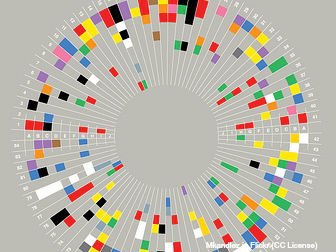From its first gathering in Copenhagen in 2001, the Global Investigative Journalism Conference has been a catalyst for collaboration. Journalists from around the world have come to network, brainstorm, and ultimately work together on stories that have made headlines around the world. Sometimes the stories are  inspired by panelists who arrive full of tips and leads. Other times it happens in the hallways and the bars, over drinks or coffee.
inspired by panelists who arrive full of tips and leads. Other times it happens in the hallways and the bars, over drinks or coffee.
This year, for the first time, we’re adding a bit of structure to all the brainstorming. We’ll be running a series of collaboration workshops led by experienced editors with proven records for getting award-winning stories off the ground. The discussions will be built around three subject tracks, each with multiple panels at GIJC13:
Corruption and Organized Crime: The amount of dirty money washing around the world each year is estimated at $2 trillion, and it affects everything from health and human rights to democracy and national security. This session will be led by Sheila Coronel, director of the Stabile Center for Investigative Journalism at Columbia University, and Drew Sullivan, founder of the Organized Crime and Corruption Reporting Project.
Environment and Resources: GIJC13 will host some of the world’s top journalists writing on climate change, the oil industry and mining, rainforest destruction, toxic chemicals, and more. This workshop will be led by data journalism expert Nils Mulvad of Investigative Reporting Denmark and veteran environmental reporter Mark Schapiro, author of Exposed: The Toxic Chemistry of Everyday Products.
Sports: With the World Cup and Olympics coming to Brazil, match fixing scandals spanning the globe, widespread doping, and plenty of fraud and waste in stadium contracting, there’s no shortage of hard-hitting stories to do on the sports industry. Leading the Sports Workshop will be Andy Lehren of The New York Times and Rob Rose of South Africa’s Sunday Times.
Our editors will start with a brainstorming session, and then, as needed, will break up the workshop into groups to focus on individual stories and projects.
Please sign up for the workshops on Sched. We’ll be distributing data sets and documents at each session, so please let us know if you’d like to participate. Need to know more? Send us an email.
